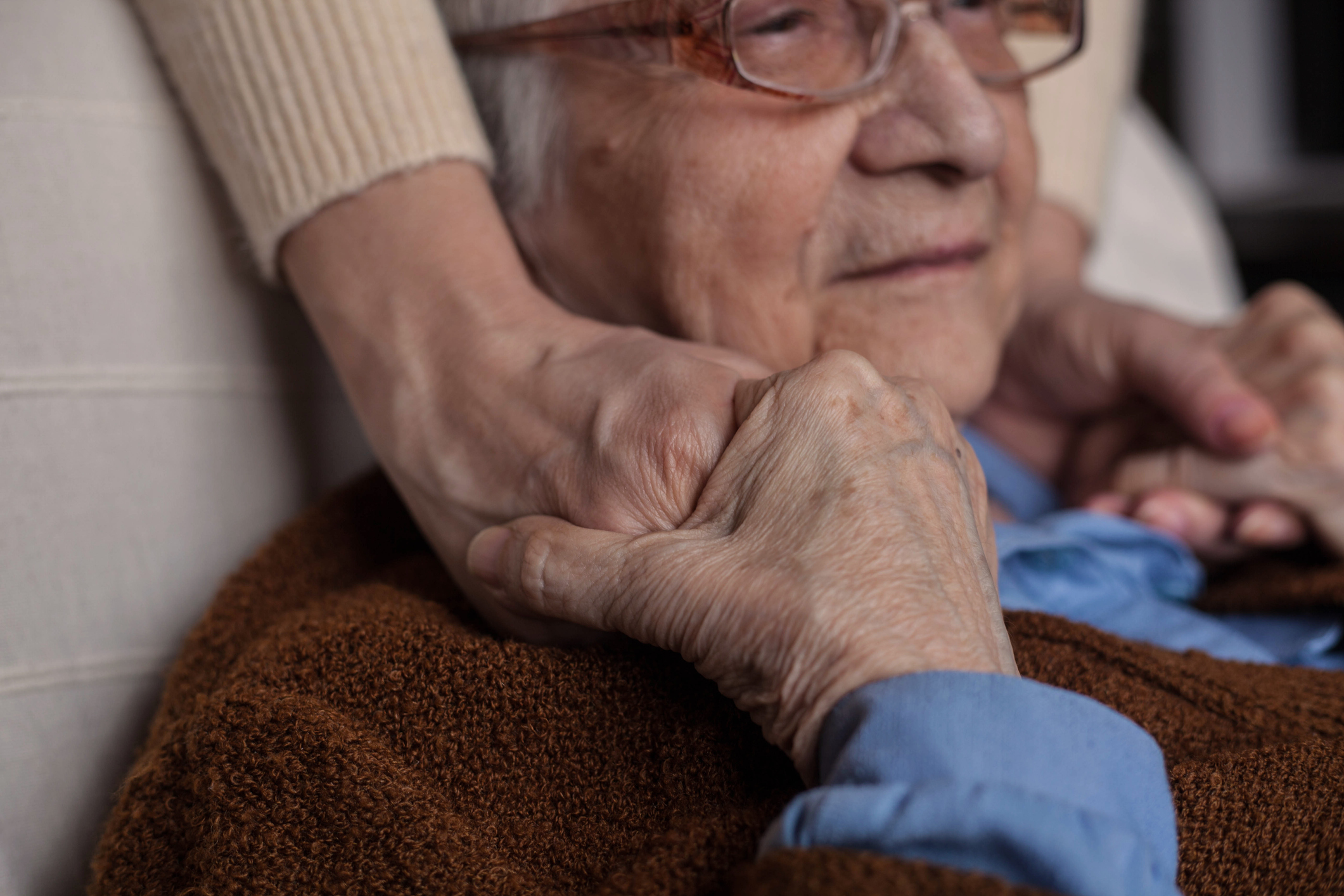
These care tips can help with late stage Alzheimer’s symptoms.
Receiving the news that a senior loved one has been diagnosed with Alzheimer’s disease is life-altering. Thinking through the many different facets and aspects associated with the disease as well as its impact, both now and in the future, can be overwhelming.
In this three-part series, we’ve outlined the early, middle and late stage Alzheimer’s symptoms, detailing the type of care needed during each stage, what family caregivers can expect, and how Hearts at Home In-Home Care, a licensed provider of elder care in Overland Park and the surrounding area, can help.
Late Stage Alzheimer’s Symptoms & Caregiving Tips
During the final stage of dementia, which may last several years, needs become much more pronounced. It’s important to ensure safety and comfort, something that becomes more challenging as the older adult loses the capacity to communicate verbally. Self-care for the caregiver is also crucial in this stage, as providing care is often both emotionally and physically draining.
Here are the late stage Alzheimer’s symptoms your loved one may experience:
Increased Care Needs:
- Help with walking (and then transferring when walking is no longer feasible)
- Careful assistance with eating/drinking, as swallowing becomes more difficult
- Full-time assistance with personal hygiene needs
- Monitoring for and addressing any physical health issues
Tips on How to Help
Since the senior will eventually lose the ability to share how she/he is feeling and what is needed, you’ll want to pay close attention to nonverbal cues. Proactive care can be achieved through careful planning regarding the senior’s day, attempting to stick as close to a routine as possible for mealtimes, exercise/repositioning, using the bathroom, etc. These strategies can help ensure the senior maintains the very best quality of life and dignity.
Meals:
- Encourage as much autonomy as you can. In the event that the senior can still self-feed, allow an abundance of extra time and serve foods that are simpler to manage, such as finger foods in small, bite-size portions.
- Ensure your loved one is sitting upright during mealtime, and for a period of at least 30 minutes after eating, to avoid the risk of aspiration.
- Provide plenty of liquids. The senior may have lost his/her feeling of thirst, and may forget to drink.
- Keep an eye on the older adult’s weight. Although some degree of weight loss will be expected during this stage, it’s important to see the physician when any weight loss is noted, for recommendations.
Using the Bathroom:
- A bedside commode can be very helpful in this stage. Assist the senior as needed for safety, but again, let her/him handle as much of the task as possible independently.
- Reminders to use the toilet at routine intervals during the day will help prevent an accident.
- It’s recommended that you keep adult diapers and absorbent pads readily available to use if needed, especially overnight.
- The senior may not have a daily bowel movement. However, talk to the physician if she/he seems to be constipated, and particularly if it is been a few days since the last bowel movement.
Personal Care:
- Keeping the senior’s skin clean and dry is very important to prevent sores. A daily bath/shower is not necessary, however. A bed bath can be just as effective.
- Make sure to help your loved one change position a minimum of every two hours. If bedbound, use foam wedges or pillows to relieve pressure, and learn proper turning and repositioning techniques.
- Incorporate physical movement into each day, based on the physician’s approval and recommendations. Even just lifting and bending the arms and legs can help prevent joint freezing.
You can create a soothing environment for the senior by focusing your energy on sensory stimulation, such as by:
- Reading out loud
- Playing or singing his/her favorite music
- Sitting outside when weather permits
- Smoothing scented lotion on the skin
- Baking a favorite treat
- Reminiscing together through photo albums
- Bringing in a pet therapy animal for the senior to pet or hold
Contact the licensed dementia care team at Hearts at Home In-Home Care for additional strategies to allow for the highest quality of life for a cherished older adult in late-stage dementia. We are here 24/7 to help as much or as little as you would like.
Email or call us any time at 913-440-4209 to learn more about our home and elder care in Overland Park and the surrounding communities.
